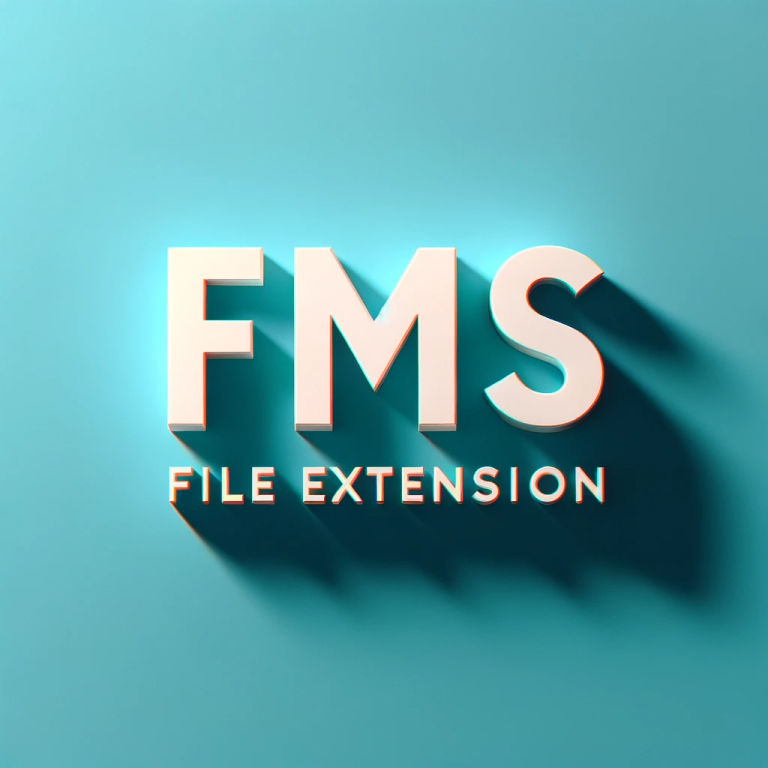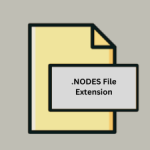.FMS File Extension

FamiStudio Project
| Developer | BleuBleu |
| Popularity | |
| Category | Audio Files |
| Format | .FMS |
| Cross Platform | Update Soon |
What is an FMS file?
The .FMS file extension is a specialized file format associated with FamiStudio, an audio project application designed for creating music tracks reminiscent of the soundtracks of classic NES (Nintendo Entertainment System) games.
This file extension is integral to the FamiStudio ecosystem, serving as the primary format for saving and sharing compositions created within the application.
FamiStudio, known for its user-friendly interface and versatile music composition tools, caters to both novices and experienced musicians who are keen on exploring the chiptune genre.
More Information.
FamiStudio’s development was motivated by the resurgence of interest in retro gaming and chiptune music.
The initial purpose of the .FMS file was to offer a compact and efficient way of storing music data that could replicate the unique sound and feel of NES music.
This file format was designed to encapsulate various elements of a music project, including tracks, instruments, effects, and patterns, thereby simplifying the process of creating and sharing NES-style music compositions.
Origin Of This File.
The .FMS file extension was developed alongside the FamiStudio project, which emerged as a modern alternative to older chiptune music creation tools.
FamiStudio was created to provide an accessible platform for composing NES-style music, with a particular focus on ease of use and integration with contemporary music production workflows.
The .FMS extension, therefore, originated as a native file format for FamiStudio, optimized for storing all the necessary data for NES music tracks.
File Structure Technical Specification.
The .FMS file extension encompasses a structured format that includes several components essential for chiptune music production:
- Header Information: This section contains metadata about the file, including version information and global settings.
- Instrument Data: Detailed information about the instruments used in the composition, including waveforms, duty cycles, and envelopes.
- Track Data: The core of the .FMS file, which contains the actual music data organized into tracks and patterns. This includes notes, tempos, volume levels, and other musical elements.
- Effects and Automation: Information about various effects applied to tracks and instruments, as well as automation data for dynamic changes in the composition.
How to Convert the File?
Open FamiStudio:
- First, you need to have FamiStudio installed on your computer. It’s available for Windows, macOS, and Linux.
- Launch FamiStudio.
Load the .FMS File:
- Open the .FMS file in FamiStudio. You can do this by clicking on ‘File’ and then ‘Open’, or by dragging and dropping the .FMS file into the FamiStudio window.
Export the File:
- Once the .FMS file is open in FamiStudio, go to the ‘File’ menu again and look for an ‘Export’ option.
- FamiStudio typically allows exporting in various audio formats like WAV (uncompressed audio), MP3 (compressed audio), or even NSF (Nintendo Sound Format).
Choose the Format and Settings:
- Select the desired output format. This choice depends on your needs. For example, choose WAV for high-quality audio or MP3 for a more compact file size.
- Configure the export settings. This may include setting the bit rate for MP3 files, choosing the loop point, and other options specific to the format you’re exporting to.
Save the Converted File:
- After setting your preferences, proceed to export the file.
- Choose a location on your computer to save the new audio file and give it a suitable name.
Conversion Complete:
- Once the export process is complete, your file will be saved in the chosen format at the specified location.
- You can now use this file in various applications that support the chosen audio format.
Advantages And Disadvantages.
Advantages:
- Specialized for NES Music: The .FMS format is tailor-made for NES-style compositions, ensuring high fidelity to the original sound of the NES.
- Compact File Size: Reflecting the data efficiency of old NES games, .FMS files are generally small and easy to share.
- Integrated Workflow: The file format is fully integrated into FamiStudio, allowing for seamless creation, editing, and playback of compositions.
- Community Support: The growing community of FamiStudio users contributes to a rich exchange of files and collaborative opportunities.
Disadvantages:
- Limited Compatibility: The .FMS file format is primarily supported by FamiStudio, limiting its use with other audio software.
- Specialized Knowledge Required: Understanding the intricacies of NES music production can be a barrier for newcomers to the chiptune genre.
- Hardware Limitations: The compositions are bound by the technical limitations of the NES sound chip, which may not appeal to those seeking more advanced audio features.
How to Open FMS?
Open In Windows
- Install FamiStudio: Download and install FamiStudio from its official website.
- Open FamiStudio: Launch the application.
- Load the .FMS File: Use the File menu to open your .FMS file, or simply drag and drop the file into the FamiStudio window.
Open In Linux
- Install Mono: FamiStudio requires Mono to run on Linux. Install Mono from your distribution’s package manager.
- Download FamiStudio for Linux: Get the Linux version from the FamiStudio website.
- Run FamiStudio with Mono: Use the terminal to navigate to the FamiStudio directory and run it using Mono, e.g.,
mono FamiStudio.exe. - Open the .FMS File: Within FamiStudio, open your .FMS file.
Open In MAC
- Download and Install FamiStudio: Get the mac version of FamiStudio from its official site.
- Launch FamiStudio: Open the application.
- Open the .FMS File: Use FamiStudio’s File menu or drag-and-drop functionality to open your .FMS file.
Open In Android
- Convert the File: Use FamiStudio on a computer to convert the .FMS file to a common audio format like MP3.
- Transfer to Android: Move the converted audio file to your Android device.
- Play the Audio: Use any standard music player app on your Android device to listen to
Open In IOS
- Convert the File: Use FamiStudio on a desktop computer to convert the .FMS file to a widely supported format like MP3 or WAV.
- Transfer to iOS: Move the converted file to your iOS device, either via email, cloud storage, or direct file transfer.
- Play the Audio: Use any standard audio player on your iOS device to listen to the converted file.
Open in Others
- Convert on Another OS: On a computer with Windows, Linux, or Mac, convert the .FMS file to a standard audio format.
- Use Cloud or USB: Transfer the converted file to your device via cloud storage or USB.
- Play the Audio: Use any music player to listen to the file.













